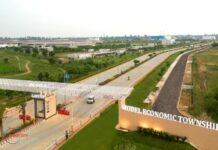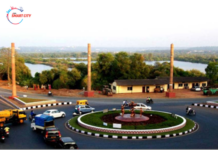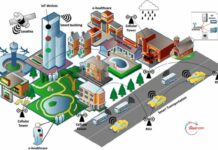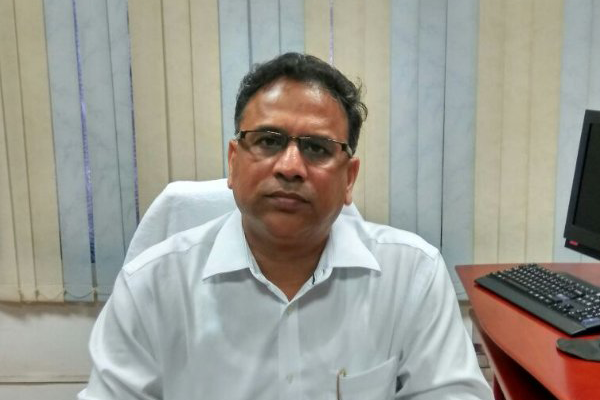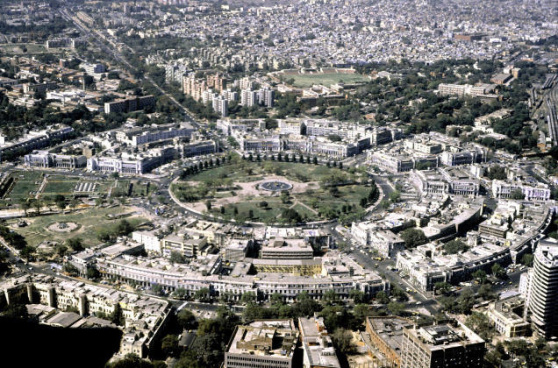

By: Kartik Sharma and Arpit Gupta
For the successful implementation of the Smart City Scheme, it is essential for the public to enthusiastically participate in its development, said Mayor, Jaipur City, Nirmal Nahata. He was speaking at the inaugural session of the Conference on ‘Smart & Green Liveable Cities’ in Jaipur. The day-long Conference was organised by the Department of Local Self Government (LSG), Government of Rajasthan; Jaipur Municipal Corporation and Jaipur Smart City Ltd. in association with Confederation of Indian Industry (CII).
He said that each city has its own and unique and kind of ‘smartness’. The smart city policy framework of Jaipur has been developed keeping in mind that it is a heritage city. Nahata further said that not only should better policies relating to smart cities be formulated and implemented but they should also be economically viable.
The Mayor also stressed on optimum use of manpower to curb the problem of unemployment. The increasing population of the cities is impacting the limited available resources. New schemes, therefore, have to be made keeping this aspect in mind. The smart cities envisage improving the quality of life of its citizens.
On the occasion, Mayor released the theme paper on Smart & Green Liveable Cities. He also launched the Kota Smart Card which will provide a digital, mobile and cashless platform for everyday use of common man in Kota.
Principal Secretary, Local Self Government, Government of Rajasthan, Dr Manjit Singh said that it is indeed a matter of pride that two cities of Rajasthan – Jaipur and Udaipur – have been selected in the first 20 cities out of 100 cities in Phase 1 of the Smart City Mission. Smart City Proposals have already been sent to the Ministry of Urban Development for Kota and Ajmer as well, he informed.
Dr Singh further said that on the occasion of completion of first year of Smart Cities Mission in June this year, Rajasthan Chief Minister, Vasundhara Raje inaugurated 100 KWp solar energy plants in Jaipur. Similarly, State Home Minister, Gulab Chand Kataria, inaugurated 190 KWp solar energy plants in Udaipur. These plants are expected to generate 1,40,000 and 2,50,000 units of electricity respectively.
The Principal Secretary also highlighted the initiatives taken by Rajasthan in urban sector such as Efficient Public Street Lights, Digitization of land data, Mukhya Mantri Jal Swavlamban Abhiyan (MJSA), among others.
Earlier, Director, National Institute of Urban Affairs, Professor Jagan Shah said that with the Prime Minister’s Smart City Mission we are trying to develop smart cities in an innovative manner. The State Government and the City Local Bodies along with the citizens decide the pathway for the development of a smart city. He said that it is imperative to develop a model of partnership between the Local and State Government bodies, Industries as well as the educational institutions and NGOs for successful development of Smart Cities. He also emphasised on the need for happiness and time for leisure to improve the quality of life of citizens.
Regional Director for South and Southeast Asia, United States Trade Development Association, Henry Steingass said that core of economic development in any modern society is successful urbanization and interconnections of infrastructure.
Managing Director, State Bank of Bikaner and Jaipur, Jyoti Ghosh threw light on the role of banks in spreading the idea of smart cities to the community. He said that through bank hoardings in the state he will help in publicising the Smart Cities mission. He further said that a banker is not removed from the society and can thus play a pivotal role in spreading the message.
Chairman, Indian Green Building Council (IGBC), Dr Prem C Jain said that there is a need to preserve the nature and make cities greener and better to live in. He also announced that an International Green Building Congress will be held in Jaipur in September 2017. He also stressed the need to make semi urban townships green and smart.
The Vote of Thanks was proposed by Chairman, Indian Green Building Council, Jaimni Uberoi.
The inaugural session was followed by a plenary session on ‘Smart City Challenges and Opportunities’ chaired by Chief Operation Officer, Mahindra Worldcity Jaipur Ltd., Sanjay Srivastava. During the session presentations were made on three Smart City Projects – Ajmer, Jaipur and Kota.
Chief Executive Officer, Jaipur Smart City Ltd., V Saravana Kumar highlighted the aspects of Area Based Development, Adaptive Reuse as well as Pan City Development in Jaipur. In order to bridge the funding gaps it is important to develop Public Private Partnerships, he said. Furthermore, a boost to night tourism, night heritage walks will begin in Jaipur, he added.
While emphasising on the smart city concept of Prime Minister Narendra Modi, the Commissioner, Municipal Corporation Kota, Shivprasad Madan Nakate said that there is no singular model of a smart city. The model should be practical, real time and based on the needs of the city. He also highlighted the importance of the Kota Smart Card as a cashless, mobile wallet which was launched today.
Commissioner, Municipal Corporation Ajmer, Priyavrat Pandya gave a presentation on the challenges as well as initiatives for making Ajmer a smart city.
Managing Director, Cisco, Angshik Chaudhuri stressed on the importance of education and healthcare in the smart city model.
Regional Director for South and West Asia C 40, Sanjay Sridhar gave a presentation on the Road to the Top – the New Urban Agenda for Rajasthan. He emphasised on the need for vision, mission as well as outcome to be tied.

